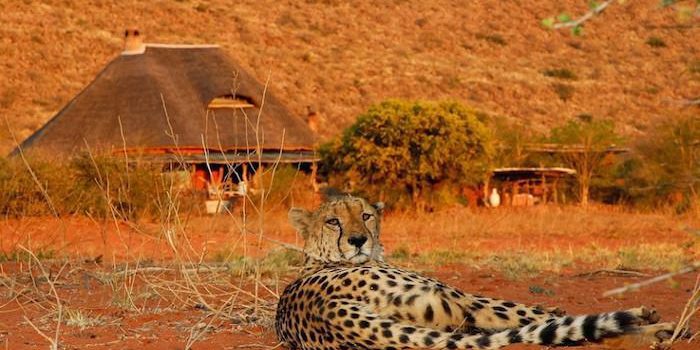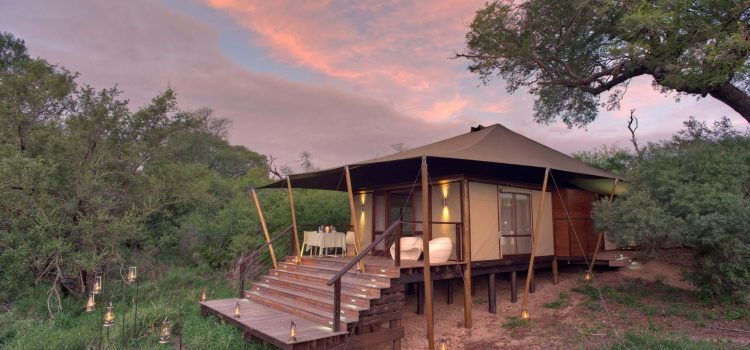There is no doubt that penguins are amongst the best-loved birds on the planet. Popular culture has spotlighted their lifestyle and habitats even further with movies such as Happy Feet and March of the Penguins. The TV screen is as far as many people will ever get to see these charismatic creatures of the Atlantic but, for the lucky visitors to South Africa’s shores, the chance to see them in their natural habitat is exceedingly good. If you have time to do a morning’s beach excursion to Boulders Beach in Simonstown during your trip you could find yourself lying on a towel on the white sandy beach only meters away from a penguin, or even swim right next to one of these feisty black-and-white creatures. Normally however, visitors just stop in for a short visit en route down to the Cape of Good Hope on their Peninsula Tour.
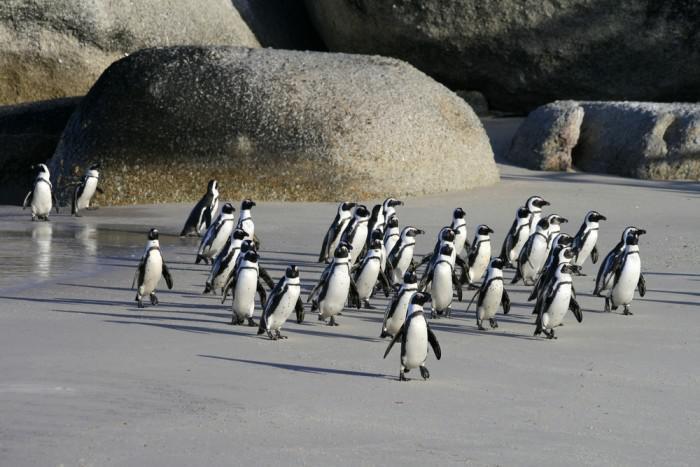
Boulders Beach is one of the most beautiful, untouched stretches of coastline in Cape Town with turquoise waters and little private bays perfect for wind-free lazy summer days. The beach, located less than an hour’s drive from the Mother City and Table Mountain, is unique in that the large boulders – after which it is named – give the beach lots of aesthetic character as well as provide much-needed shelter from the famous Cape Town wind. This is probably also why over 2000 African penguins have made their home here. Visitors will find nests and breeding sites under boulders and wedged between cracks.
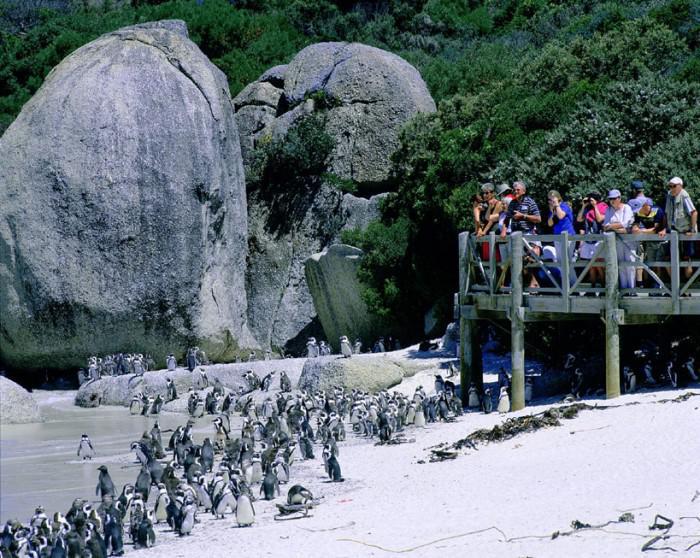
This area is part of the Table Mountain National Park and thus a protected marine area. Access is strictly controlled by SANParks to ensure that the beach remains pristine, and a small entrance fee is required if you want to enter the beach. Penguins can be found anywhere on the beach on a given day, so the best way to catch a glimpse of them is to use the walkway (which is free of charge) built especially for viewing so as not to disturb the birds or block their route to the waves. The walkway takes you around the whole area, including the nesting and breeding sites of the Boulders Beach penguin colony.
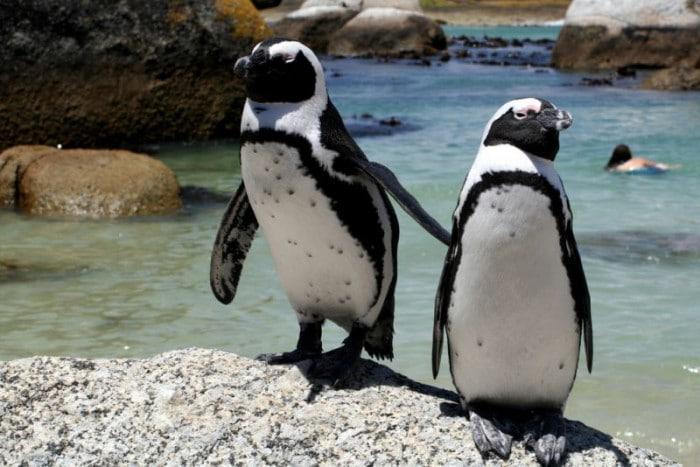
Some interesting African penguin facts: The little tuxedoed birds were once called Jackass Penguins because of the braying donkey sound they make when calling to each other, but have since been re-named after scientists found that many other South American penguins make the same noise. The African penguin diet consists mainly of fish, shellfish and squid and during a hunt they can swim for up to 20 km at a time. They are small birds that measure up to about 60cm only, are incredibly strong swimmers that can dive to depths of up to 130m, and are able to hold their breath for an incredible 150 seconds!
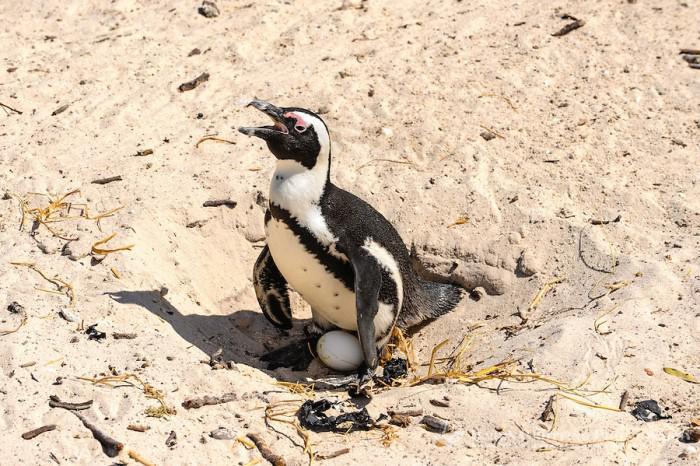
The penguins of Boulders Beach live a very sheltered existence, but many of the endangered African penguins face great threats from their natural environment as a result of human negligence. The main threat to their existence are oil spills. These don’t occur very often but when they do, they are catastrophic. Oil in the water makes contact with the penguin’s body, engulfing it and stopping the feathers from functioning properly. The penguin feathers are their main form of insulation so their malfunction results in many penguins dying from hypothermia.
As cute and cuddly as they may seem, visitors should not try to feed them or touch them, and need to adhere to the sign boards and listen to their guide. They are, after all, wild animals and can become scared and aggressive when approached too quickly or by too many people.
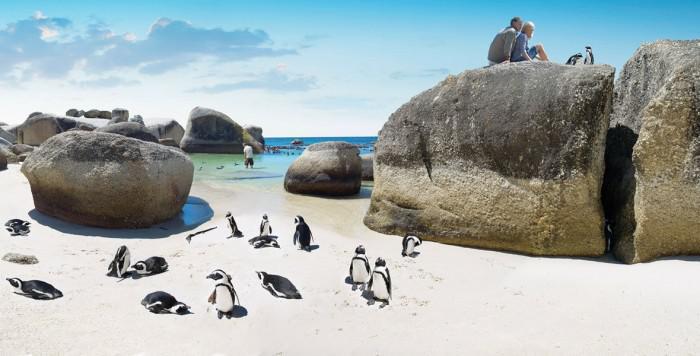
With the rates of pollution and environmental degradation on the increase there is no telling how long these incredibly charismatic birds will be around for future generations to experience. Boulders Beach offers travelers a rare opportunity to experience them first hand, which is something that should not be taken for granted. So the next time you’re in Cape Town, make sure you include a visit to the largest African Penguin colony in Southern Africa.
